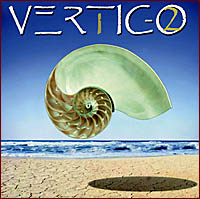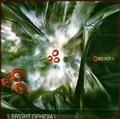VERTIGO (usa) - 2 (2006)

Label : Frontiers Records / Nocturne
Sortie du Scud : 9 juin 2006
Pays : USA
Genre : Rock mélodiquel
Type : Album
Playtime : 10 Titres - 40 Mins
Il arrive parfois que le nom de l’album soit représentatif de son contenu. C’est le cas avec cet album dont le nom dénote un manque d’originalité et de créativité à l’image des 10 morceaux qui le compose.
Le fils de John Williams (le créateur des musiques de Star Wars et Indiana Johns) et ancien chanteur de TOTO signe ici son second album (d’où le titre !) avec VERTIGO.
Alors que la fadeur du précédent album reste encore dans les mémoires, ce nouvel opus corrige le tir avec des compositions très agréables. Hélas, il ne faut pas chercher la moindre créativité artistique, Joseph Williams se contente de reproduire tous les ingrédients d’un bon album d’AOR sans rien apporter de personnel. Pour couronner le tout il fait figurer deux reprises qui, bien que remarquablement interprétées, renforcent cette impression de “déjà entendu”.
Ce nouvel album ne fera donc pas mal à la tête mais il réserve incontestablement un bon moment. Le savoir-faire est omniprésent et les compositions sont très agréables, il sera même assez difficile d’en écarter, au contraire, on aura du mal à se sortir du crâne la mélodie de “Holy” par exemple.
Le chant de Williams est absolument remarquable, on s’en serait douté. Du côté des musiciens, il retrouve l’homme à tout faire du label Frontiers, Fabrizio Grossi, à la basse, au clavier et en charge de la production. C’est Virgil Donati (RING OF FIRE, SOUL SIRCUS, ex-Steve Vai) qui est derrière les fûts. Le guitariste Alex Masi fait un travail très soigné mais il lui manque un peu de fantaisie ; là aussi, son jeu est assez convenu.
VERTIGO 2 est donc un album très plaisant qui ravira les amateurs d’AOR peu soucieux d’originalité.
Ajouté : Mardi 11 Juillet 2006
Chroniqueur : Alexis de Fireball
Score :    
Hits: 19317
|














